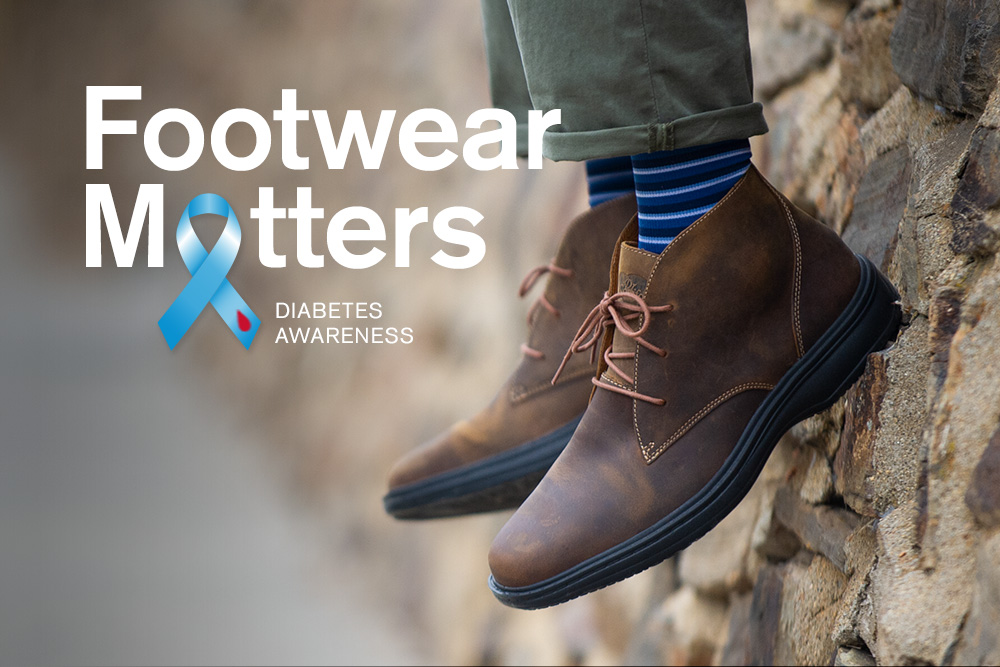Diabetes Awareness
Written by: Erick Janisse
Did you know that over 11% of the U.S. population today has diabetes? And, among seniors, the number rises to greater than 1 in 4 living with diabetes! While diabetes can and does have markedly negative effects on the entire body, of special concern is the impact that diabetes can have on your feet. Diabetes can actually cause damage to the nerves in your feet that can lead to foot problems like ulcers that can take a long time to heal.
Luckily, there are many easy and simple things that you can do to prevent diabetes-related foot problems. First and foremost is to prevent the nerve damage (also called peripheral neuropathy) from developing in the first place. The best way to do this is to keep your blood sugar levels under tight control. Consistently high blood glucose levels are the leading cause of peripheral neuropathy. Consult with your physician to make and implement a plan. Also, ask your doctor to check your feet for neuropathy at least once or twice a year.
Protecting your feet is important, regardless of whether you have neuropathy (but it is of particular importance if you have been diagnosed with peripheral neuropathy). Safeguarding your feet and preventing diabetes-related foot complications begins with wearing proper footwear – shoes, inserts and socks – and wearing them whenever you’re up standing or walking. People with diabetes are strongly discouraged from walking around barefoot. When we talk about “proper” footwear, we mean shoes that truly fit your feet and have been fitted by an expert shoe-fitting specialist. Shoes that fit the shape of your unique foot and aren’t too long, short, narrow, or wide. Proper footwear also means shoes that provide cushion, support, and protection for your feet.
If you are enrolled as a Medicare beneficiary, you’ll be glad to hear that Medicare does provide coverage for special shoes and inserts for folks with diabetes and foot-related conditions. The best way to begin this process is by seeing your podiatrist or primary care physician to get the process started. They will likely refer you to a therapeutic shoe fitting specialist in your area, or they may even be able to provide the shoes right in their office, as some podiatric practices do. Medicare does require a lot of very specific paperwork to be completed by your doctor and the shoe supplier, so please be patient with them.
You may have read some pretty frightening things about diabetes and the feet in your online research but rest assured…all the scary things that you read about are largely (if not entirely) preventable! Using great shoes is the first step!
Find a Dr. Comfort footwear provider in your area: Click Here
The contents of this blog were independently prepared, and are for informational purposes only. The opinions expressed herein are those of the author and are not necessarily indicative of the views of any other party. Individual results may vary depending on a variety of patient-specific attributes and related factors.

